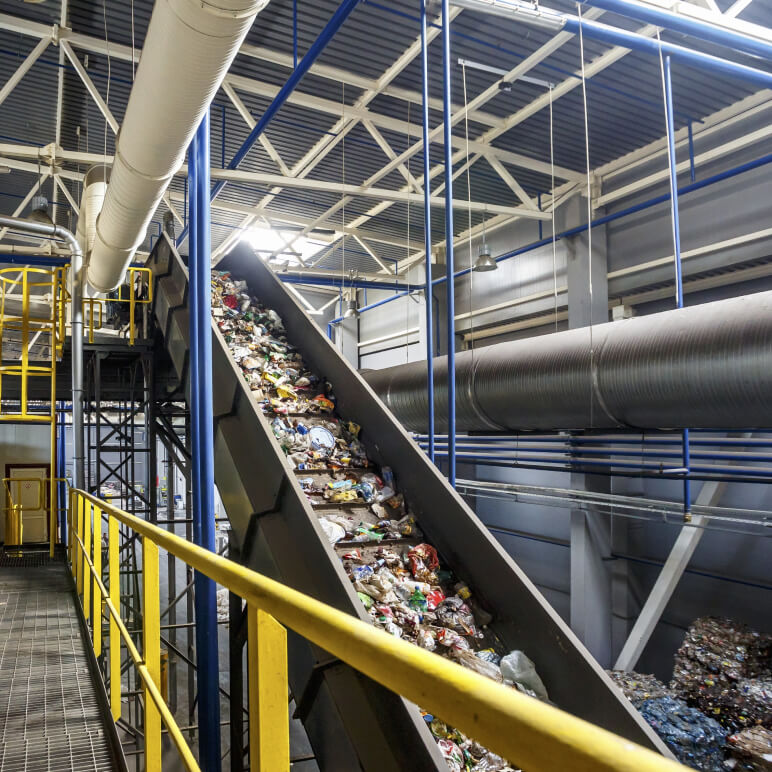The Problem
Current projections from the United Nations Environment Programme show that by 2050, over 1 billion tons of plastic will be produced annually worldwide. At these forecasted rates, plastics manufacturing will then account for 20% of total oil consumption, according to the World Economic Forum.
Meanwhile, the OECD finds that less than 10% of plastic waste generated annually worldwide is currently recycled, with US recycling rates declining. Many plastics are hard or impossible to recycle using existing mechanical recycling technology, which AMI Plastics reports can only process 20%–30% of the types of plastics produced. The remaining plastic ends up in landfills, incinerated, or released into the environment.
By 2050
18 million barrels of oil per day will be used in the production of plastic.
95%
of plastic packaging is used once.
Up to 31%
of global GHG emissions will be attributed to plastic production by 2050 if current practices continue.
$100+ billion
of value of single use plastic is thrown away each year.
$2 billion
is spent disposing of plastic via landfills annually in the U.S. alone.


Creating a More Sustainable Future
By improving recycling practices today, we can protect our environment and build a cleaner tomorrow.
Game-Changing Approach
We recycle waste plastic into reusable products, that are otherwise destined for landfill.
- We use advanced technology to upcycle plastic waste that is otherwise destined for landfill or incineration.
- Our proven pyrolysis technology upcycles 80%+ of plastics, including multilayer, hard-to-recycle plastics.
- Turning plastic back into usable hydrocarbons reduces the need to extract new hydrocarbons.
- The result, a more sustainable economy that is less reliant on fossil fuels.

Each Freepoint Recycling Facility
0
million pounds per year of waste plastic will avoid landfills.
0
fewer trucks needed per year.
0
million pounds of new plastic will be created from recycled materials.
Each Freepoint pyrolysis facility reduces GHG emissions by the equivalent of 15,000 cars.